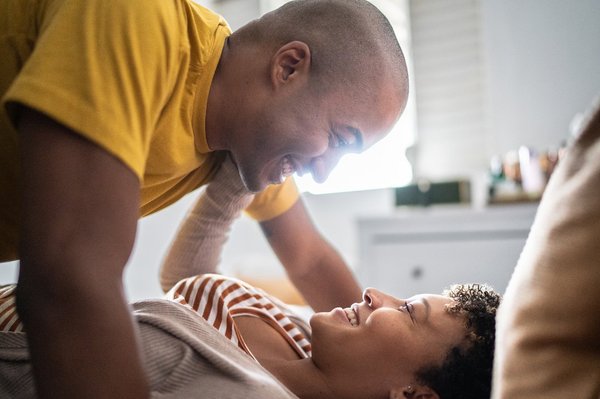Q:
My friends talk a lot about their sex lives. I'm 25 and single, but sex isn't fun for me at all. It always hurts. What's wrong with me?
A:
Painful intercourse, known as dyspareunia, is more common than you may think. The type of pain may be as different as the women themselves. Some women describe it as a tearing or burning when penetration is attempted; others describe it as a pain deep within. As a result, women may involuntarily tighten their muscles to prevent penetration, a condition called vaginismus.
There are a number of causes of sexual pain, including: endometriosis, in which uterine tissue grows outside the uterus; pelvic adhesions, or internal scar tissue from a previous surgery or infection; fibroids (noncancerous tumors) growing on the muscle layer of the uterus; or inflammation of the cervix. Other causes include lack of lubrication, irritable bowel syndrome, urinary problems, or pelvic inflammatory disease.
Vulvar vestibulitis syndrome (VVS) is more difficult to diagnose, however, and believed to be the most common form of superficial dyspareunia. Women with VVS experience searing pain whenever the opening to their vagina or the valvular tissue around the opening is touched. Even the tip of a cotton swab can cause tenderness or discomfort. This condition may result from an oversensitivity of the nerves in the area or overgrowth of nerves, which overreact to the slightest touch.
Since you are experiencing pain, the first step is to talk to a health care professional for a diagnosis. Do not let your health care professional tell you that the pain is "all in your head." Quite often, nothing appears physically wrong in women who have VVS so health care professionals may tend to consider their pain psychological.
Once you receive the correct diagnosis, work with your doctor on an appropriate treatment plan. This may involve medication or surgery, along with physical therapy and, in some cases, psychological counseling. In most cases, a surgical approach should be considered only after medical interventions have been attempted.
I hope you will make an appointment right away. You deserve to have a happy, healthy sex life, just like your friends.







